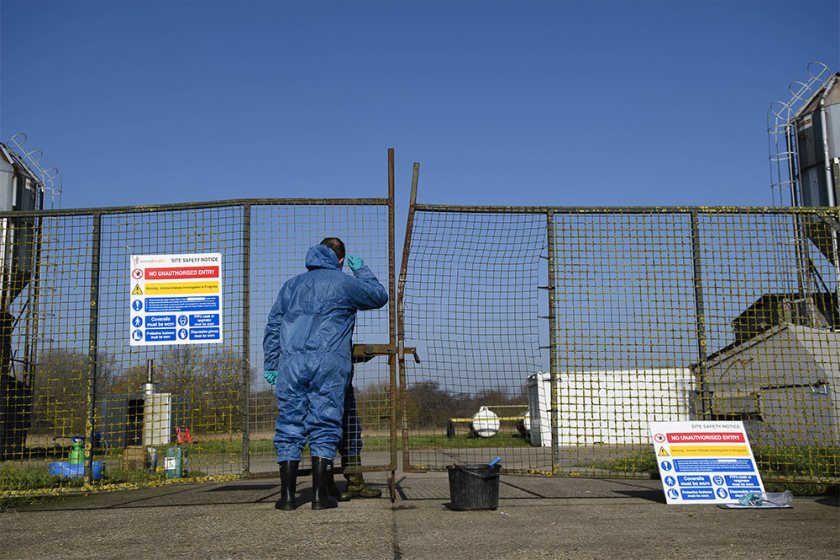
Highly-pathogenic bird flu has been confirmed in captive birds at a non-poultry premises in Worcestershire.
Avian influenza, of the H5N8 subtype, was discovered at a wild bird rescue centre near Droitwich Spa, Wychavon.
All birds on the premises will be humanely culled, Defra said on Sunday 13 December as part of an online update.
The latest outbreak to impact the UK comes as mandatory housing measures are rolled out from today.
It is now a legal requirement for all farmers and poultry keepers to keep their birds indoors following a string of outbreaks.
They will need to follow strict biosecurity measures to limit the spread of avian influenza and eradicate the disease.
The risk of incursion of bird flu is 'very high' for wild birds, and 'medium' for poultry with high biosecurity and 'high' for poultry with poor biosecurity.
A joint statement from Britain’s three Chief Veterinary Officers (CVOs) said: "Whether you keep just a few birds or thousands, from 14 December onwards you will be legally required to keep your birds indoors.
"We have not taken this decision lightly, but it is the best way to protect your birds from this highly infectious disease."
Just last week, outbreaks of highly pathogenic avian influenza were confirmed at two turkey farms in Norfolk.
How can I prevent bird flu?
Keepers are advised by Defra to be vigilant for any signs of disease in their birds and any wild birds, and seek prompt advice from their vet if they have any concerns.
They can help prevent avian flu by maintaining good biosecurity on their premises, including:
• Housing or netting all poultry and captive birds
• Cleansing and disinfecting clothing, footwear, equipment and vehicles before and after contact with poultry and captive birds
• Reducing the movement of people, vehicles or equipment to and from areas where poultry and captive birds are kept
• Thoroughly cleaning and disinfecting housing at the end of a production cycle
• Keeping fresh disinfectant at the right concentration at all points where people should use it, such as farm entrances
• Minimising direct and indirect contact between poultry and captive birds and wild birds, including making sure all feed and water is not accessible to wild birds
